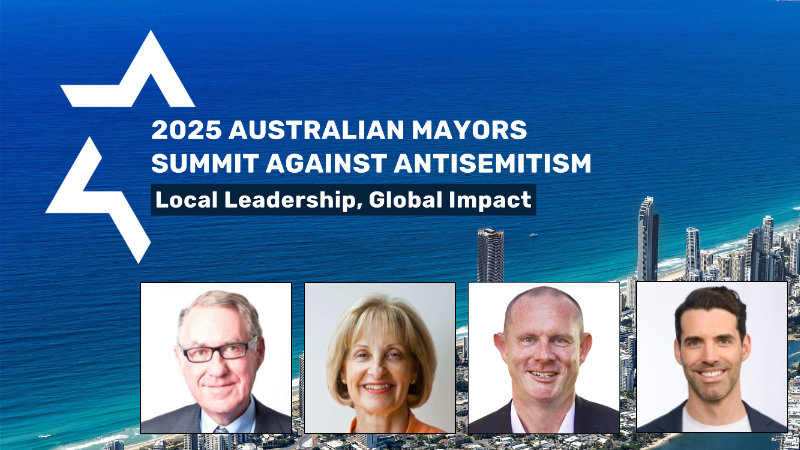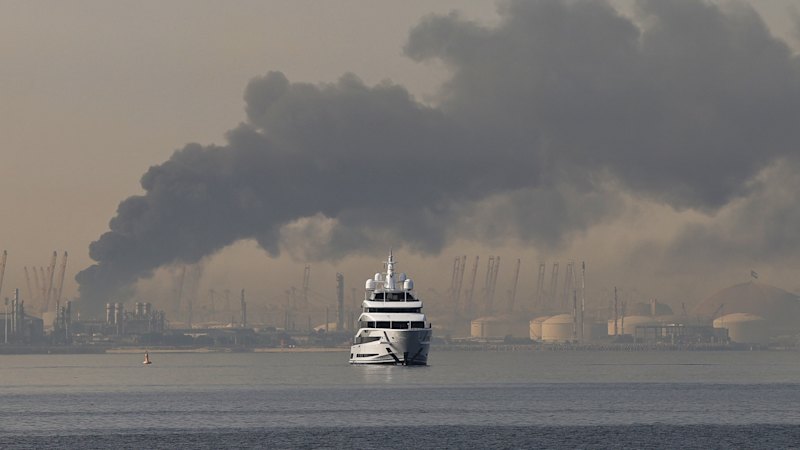
UPDATE: A controversial pro-Israel summit, the Australian Mayors Summit Against Antisemitism (CAM Summit), is raising urgent ethical concerns as local government councillors across Australia face pressure to attend. The summit, set for early September 2023 on the Gold Coast, aims to promote the International Holocaust Remembrance Alliance’s definition of antisemitism and push for bans on the Boycott, Divestment, Sanctions (BDS) movement against Israel.
Just days ago, hundreds of letters were dispatched to local councillors urging them to boycott the summit, citing its ethical implications. Councillor Gideon Cordover from Kingborough, Tasmania, expressed astonishment at the lavish hospitality being offered, stating, “We’re talking big money. In my six years on local council, I’ve never encountered such tactics from a lobby group.”
The CAM Summit, backed by influential figures like Sasha Roytman, CEO of the Israel-US-based CAM movement, aims to embed the IHRA definition across local governments. The summit will also introduce a Municipal Antisemitism Action Index, intended to evaluate municipalities on their effectiveness in combating antisemitism. This raises significant concerns about potential conflicts of interest, as local government Codes of Conduct generally discourage councillors from accepting gifts that could influence their decision-making.
Local councils, such as those in Merri-bek and Sutherland, have begun advising councillors to decline the invitation, emphasizing the ethical implications of participating in such an event. With the summit’s agenda highlighting the need for compliance with international definitions of antisemitism, many fear that it may indeed prioritize political agendas over genuine community safety.
The Australian Services Union (ASU) has also launched a campaign against the summit, calling on local government officials to reject participation. Phillipa Balk, assistant branch secretary of ASU Vic Tas, stated, “This conference has troubling connections to the Israeli military and to people with a history of racist remarks. We urge all local government officials not to participate.”
As the summit approaches, more than 500 councils across Australia are grappling with the decision of whether to send representatives. Public statements from CAM claim that 70 councils are involved, but verification has yet to be confirmed. Councillor Ryan Morris from Wollongong sparked debate when he sought approval to attend the summit, ultimately receiving a majority vote in favor, which highlights the divisions within local governments regarding this contentious issue.
As backlash grows, several councils—including Woollahra and Waverley—are mobilizing their councillors to attend, with Waverley Council set to present Australia’s first antisemitism local government plan. However, many other councils have made it clear that they will not participate, particularly in regions like Western Sydney, where council responses have leaned towards non-participation.
The implications of this summit extend beyond local governance, as it has already sparked significant community discourse. For instance, the cancellation of 11 sessions at the Bendigo Writers Festival due to a boycott has showcased the real-world consequences of adopting the IHRA definition, underscoring the urgent need for local councils to navigate these complex issues carefully.
As the CAM Summit nears, the ethical debate intensifies among local government officials, community leaders, and residents alike. The outcome of this summit could have lasting repercussions on local governance and community relations across Australia.
Stay tuned for updates as this story develops.






